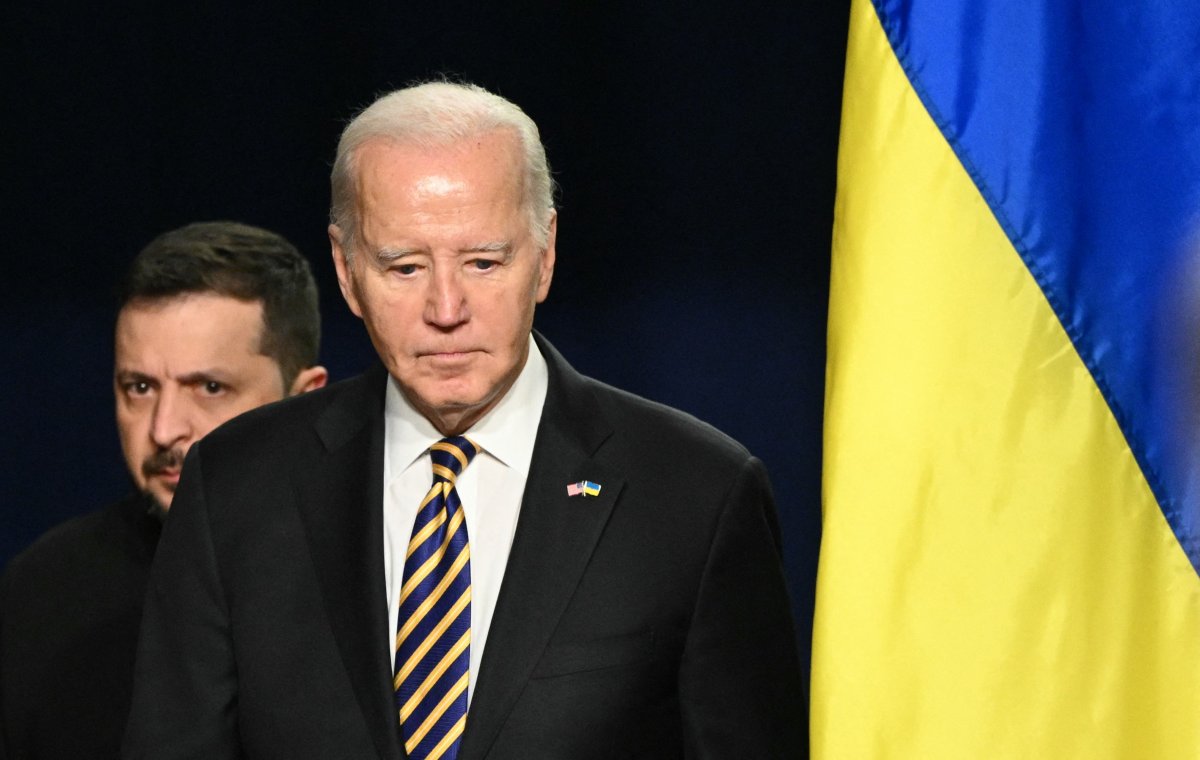Washington's apparent concerns to Kyiv not to continue strikes on Russian oil infrastructure show unease that attacks hampering Moscow's military machine may have repercussions on President Joe Biden's campaign trail.
Overnight Tuesday, in the border oblast of Smolensk, images of blazes by an oil depot in the regional capital of the same name followed what local authorities called an "enemy attack on civilian fuel and energy facilities."
It was the latest sign that Ukraine was continuing apace with its attacks against Russian energy infrastructure over recent months. Kyiv often does not claim direct responsibility for them, though the U.S. urged the Security Service of Ukraine (SBU) and Ukraine's Military Intelligence Directorate (GUR) to stop the strikes.
Citing unnamed U.S. officials, the U.K. newspaper Financial Times said last month Washington feared that targeting such energy facilities, with at least 20 hit this year, could drive up global prices for oil ahead of a U.S. election where inflation and gas pump costs are politically sensitive.
Costs at the pump in the U.S. have been rising for months, with the national average climbing to $3.66 as of Thursday, according to the AAA [American Automobile Association]. With grocery store prices high due to inflation, the cost of filling a tank is tangible sign for how many American voters view the economy as they go to the ballot box.

Moody's forecast in February that Biden's reelection rests in part on gasoline prices remaining in the $3 per gallon range and that if "all else is equal, if gas prices surge back close to $4 per gallon, (Donald) Trump will win." Adding to these upward pressures are Ukraine's repeated strikes on Russian oil sites.
"The recent uptick in U.S. consumer price inflation, driven by services, housing and fuel, is already of concern to the Biden administration, which is hoping to secure a second term in the November election," Markus Korhonen, senior associate at geopolitical and cyber risk consultancy S-RM, told Newsweek.
So far, the strikes have only targeted oil-processing facilities, avoiding ports that export the product that generates much of Russia's revenues; this means that the impacts on global markets—and the U.S.—are less drastic.
"Should Ukraine begin also targeting crude oil facilities, this could threaten Russia's overall production and exports and, more meaningfully, global oil prices would tick up, driving up inflation and cost-of-living pressures in the U.S. and elsewhere," said Korhonen. "It would also raise the prospects of Russia retaliating, for example targeting energy infrastructure that the West relies on."
Ukraine has substantially increased its drone capabilities during the war. An attack earlier this month showed the extent of this reach when Tatneft's Taneco refinery in Tatarstan was hit, more than 800 miles from Ukraine's border.
Booming Russian Oil Exports
Moscow continues to rake in revenue from energy exports, despite a $60 price cap on seaborne oil. This was among a suite of sanctions by the West, with the aim of choking off funding for the Russian invasion. In the first quarter of 2024, Russia's year-on-year oil and gas earnings increased nearly 80 percent, injecting 2.9 trillion rubles ($31 billion) into the country's federal budget.
Crude oil exports from Russia have risen following the damage to refineries. Because the Russian state extracts royalties at the wellhead, the government can continue collecting revenue while crude exports are maintained, said Korhonen.
"It is major Russian oil companies, rather than the state, that are, for the time being, feeling the impact of these strikes the most," he added.
Kyiv has demonstrated it can hit the three ports that account for 60 percent of Russian exports— Primorsk and Ust-Luga both in the Baltic and Novorossiysk in the Krasnodar region, Tom O'Donnell, a Berlin-based energy and geopolitical analyst, told Newsweek. "The oil price cap sanctions are not significantly hurting Russia," he said, "so something has to be done to limit the revenues of Russia from oil, and the Ukrainians have the weapon.
"Eventually, it's quite likely that Ukraine will hit these ports. If they hit them now, there would be a shock to the market, and I don't know that the market is prepared," O'Donnell added, noting that this could take up to three million barrels a day offline. "I'm sure the White House is very nervous about this.
"I don't think they will do that on their own," said O'Donnell, who is global fellow at the Washington, D.C.-based think tank Wilson Center. "They probably want to wait until the election. After the election, if Trump wins, they would have no reason not to hit those oil ports."
If that happens, "it would not only bring up the price of oil, it would put a lot of pressure on inflation because of the impact on prices," said O'Donnell.
"So I think the Americans should prepare for this. They should go to OPEC [Organization of the Petroleum Exporting Countries]; they should go to their allies and say, 'the Ukrainians might do this,'" and get ready by tapping strategic petroleum reserves if necessary.
"There's plenty of reserves in the world that are not controlled by Russia that could be developed to completely replace all of Russian oil exports," he added.

Global Influences
Russian oil refineries are of particular value to global energy supplies because they process crude oil into various petroleum products, including gasoline, diesel, and jet fuel, but U.S. gas pump prices face other global influences.
Shipments through the Red Sea have been impacted by strikes by Houthi militants in Yemen reacting against Israel's war against Hamas. Now Iran, one of the world's major oil suppliers, has entered the conflict.
"These damaging strikes to Russian infrastructure have added major instabilities to the energy markets in the region and do have an impact on the world energy make-up," James Hill, CEO of MCF Energy, told Newsweek.
"Collateral demand is showing in global markets, but to go so far as to say it is impacting gas-pump prices is not well-founded," Hill said. "The current situation in the Middle East and the problems with shipping through the Suez Canal has more of an impact.
"Representatives on behalf of the Biden administration have claimed keeping global energy markets well-supplied and unhindered is necessary to help cool inflation, but they are also claiming it's important for the U.S.'s ability to support Ukraine."
Uncommon Knowledge
Newsweek is committed to challenging conventional wisdom and finding connections in the search for common ground.
Newsweek is committed to challenging conventional wisdom and finding connections in the search for common ground.
About the writer
Brendan Cole is a Newsweek Senior News Reporter based in London, UK. His focus is Russia and Ukraine, in particular ... Read more
To read how Newsweek uses AI as a newsroom tool, Click here.








